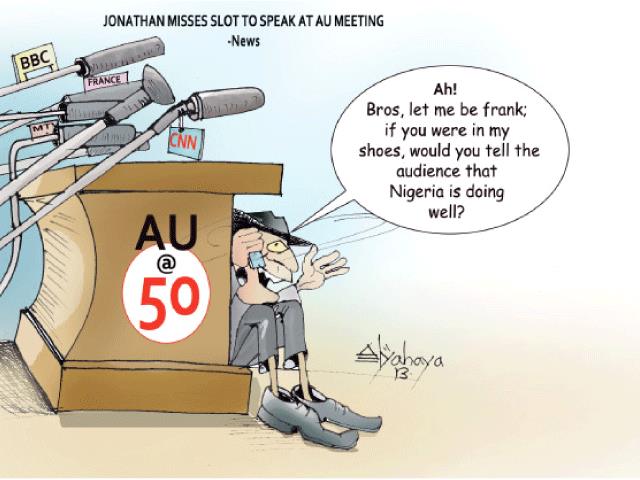The Economist magazine is one of the world’s most influential after decades of deciding the direction and flow of global issues. When it referred to Africa as the hopeless continent in the year 2000, that became a sort of badge for Africa. Needless to say its “Africa Rising” February 2013 edition is the new wave being ridden by others on Africa. The magazine recently took a look at the political end of the issues in Nigeria and it essentially captured the reason President Jonathan remains obsessed with settling scores with the so called rebel governors and the powerful forces like former Vice President Atiku Abubakar and Senator Bukola Saraki.
The magazine writes “Mr Jonathan and his PDP rump may have enough oil money to buy their way out of trouble. But for the moment the pendulum has swung in the PDP rebels’ favour. Moreover, the opposition in the shape of the All Progressive Congress, a recently formed coalition of three main parties, has also been getting its act together—and will surely try to lure some of the PDP rebels onto their side. The president, who often seems a hapless (but rarely hatless) figure on the national stage, has a real fight on his hands to keep his job.” It went on to detail how President Jonathan could be keen on using the Economic and Financial Crimes Commission (EFCC) to continue to bully the likes of Senator Bukola Saraki who is one of the leading forces of the breakaway PDP faction. The article can be accessed here Things Fall Apart .
As this battle rages on, the federal government of Nigeria is more or less shut down as many more workers embark on various forms of industrial strike. Doctors have downed tools to join the University lecturers ASUU, the workers of the Corporate Affairs Commission, while the Polytechnic Lecturers ASUP are also keen on joining. There is no end in sight to the power games at the top and this essentially means Nigerian students who have been at home for about 4 months (one complete semester) can expect to continue the unwanted holiday.
[photo; Yahaya]


